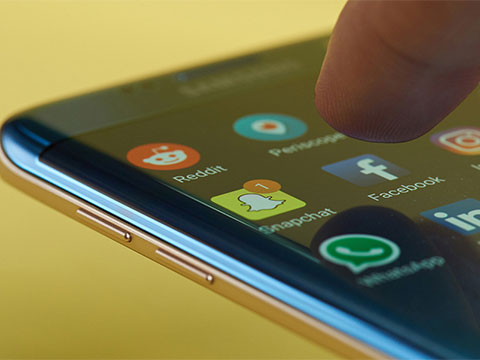Like Your Social Media Policy
- By Mark Saltveit
- Reading Time: 4 mins.
 About twenty years ago, social media literally did not exist; today, a single Facebook post by one of your vice presidents can cripple your brand.
About twenty years ago, social media literally did not exist; today, a single Facebook post by one of your vice presidents can cripple your brand.
That isn’t an exaggeration. On October 25, 2017, the social media manager of Whitefish Energy tweeted a snarky reply to criticism by the mayor of San Juan, Puerto Rico (who was unhappy about the company’s repair work on the island’s electrical grid). “We’ve got 44 linemen rebuilding power lines in your city & 40 more men just arrived. Do you want us to send them back, or keep working?” the tweet asked. Many readers interpreted it as a veiled threat to stop repairs, resulting in a hurricane of criticism worldwide. Four days later, the company’s $300 million contract was canceled.
How can you reduce the chances of such a disaster playing out in your office? We spoke with two experts in the field about ways to manage personal social media use, from the perspective of both employees and employers.
Don’t Be Mean
Mike Koehler, the founder of Smirk New Media, a digital strategies firm based in Oklahoma City, has a simple motto: “Tweet people as you want to be tweeted.” It’s important to stay positive online; “sick burns” get lots of attention (and likes), but for companies, they’re all risk and no profit. “If you wouldn’t say it out loud, don’t put it online,” Koehler urges.
Employees shouldn’t imagine that they’re anonymous. The distinction between you as an individual and your employer has largely disappeared. You might spout your edgy political opinions late at night from your home computer, but a little Googling can quickly trace you back to your employer, even if you use a pseudonym—as several fired managers have recently found out. In fact, hiding your identity is part of what makes a scandal newsworthy.
The risk is not limited to politics, especially in a smaller city. Koehler says, “We’ve had conversations with employees who go to a restaurant, and [give it a harsh review.] But … is that [restaurant] a potential client? If you publicly associate yourself with part of our company, then we can hold you accountable for these sorts of statements, because they might hurt us in the long run.”
Build a Positive Personal Online Presence
Everyone has an online presence. If you think keeping quiet is the safest course, think again. Anthony Gaenzle, the marketing director for Saxton & Stump Lawyers and Consultants in Lancaster, PA, says that you need to put items out there that reflect well on you for Google to find. (Posting an article you wrote on LinkedIn is a good example.) Otherwise, “your complaint about a pothole that didn’t get fixed from three or four years ago will be your main result.”
Even material that you think is inoffensive can backfire. If an online search for you produces only cute cat videos or clips of you cheering for your football team, potential employers might consider you insubstantial. And think ahead to where you want to be in five years. Koehler observes that “The way employment is working these days, whoever you might want to work for next is going to be looking at what you do on the web [now], too. You want to show people that you’re not wasting time when you’re participating online, but that you’re really using it strategically.”
 Promote Wise Use of Company Resources
Promote Wise Use of Company Resources
Our experts agreed that managers, even CEOs of a certain age, should embrace social media and model how to use it responsibly. Instead of worrying about whether employees are wasting time online, managers should focus on their staffers’ overall productivity and demonstrate how the effective use of this amazing resource can improve it.
Koehler says that warning people off of social media altogether is not going to work, and even if it did you’d be throwing away a tremendous resource. “At the very least, social media is a great listening tool… It’s the world’s biggest focus group. If all you do is listen to your community and your customers and what they’re talking about and what they’re interested in, then that turns into insightful data for the company.”
Even after all of this, some managers will worry that employee time spent on private social media is time stolen from work. In reality, though, it isn’t how long employees spend online that matters; it’s what they do during that time. Gaenzle puts it this way: “If they spend an hour a day reading articles on how to do their job better, that’s positive, and you should encourage it.”
He recommends creating an in-house blog or web page with links to useful articles and industry-related news stories from around the web. Be sure to include a hat tip to workers who find and share items; you might even give them a coffee shop gift card as a reward.
There are a few online pitfalls to consider. Gaenzle suggests a rule against looking at smartphones while walking down the hall, or during meetings. Koehler suggests an explicit rule against using the company’s computers and internet access for “side hustles.”
For better or worse, social media is here to stay. Harnessing its power (and mentoring employees in doing the same) can make it a positive force for your business.
Get tips for your office
Be an office hero!Mark Saltveit is the author of The Tao of Chip Kelly (Diversion Books, 2013) and Controlled Chaos: Chip Kelly’s Football Revolution (Diversion Books, 2015). He writes regularly about health and science for the Oregon Bioscience Association and about football for Philly.com, BleedingGreenNation.com, IgglesBlitz, and FishDuck.com. His work has also appeared in Harvard Magazine and the Oregonian newspaper.


